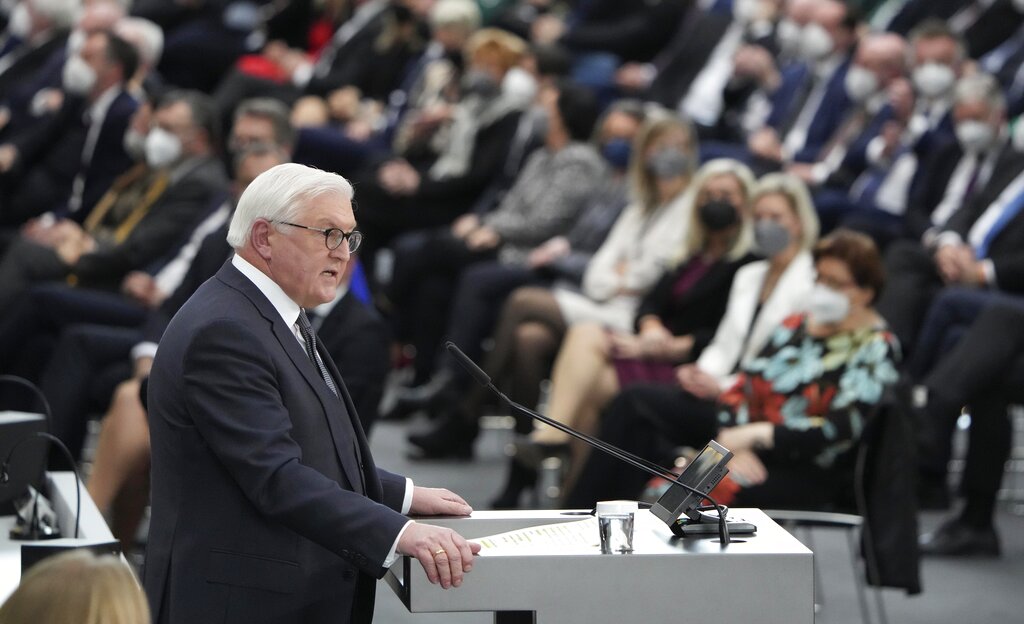On Sunday, Germany’s Federal Assembly reelected President Frank-Walter Steinmeier for a second five-year term in office in what was essentially a foregone conclusion, given the support of the conservative CDU/CSU and all three governing parties.
In the vote in the Federal Assembly — a body consisting of federal and regional MPs, who only convenes for the presidential election — Steinmeier received 1,045 from a total 1,472, with the right-wing candidate of the AfD, Max Otte, a distant second with 150 votes as well as a token 96 votes for Die Linke candidate Gerhard Trabert and 58 for Stefanie Gebauer of the Free Voters (Freie Wähler).
Steinmeier (66) was first elected president in 2017 and before that, he was minister of foreign affairs between 2005 and 2009 and then again between 2013 and 2017 as well as vice-chancellor from 2007 to 2009.
His election also means that since last year’s general elections, the top three positions in German politics — that of president, chancellor and speaker of Bundestag — are all held by Social-Democrats.
Although the conservative CDU/CSU did not run their own candidate, instead lending support to Steinmeier, the result of the vote shows that many CDU/CSU representatives did not follow the party line.
In Germany, the federal president has a largely ceremonial role.






